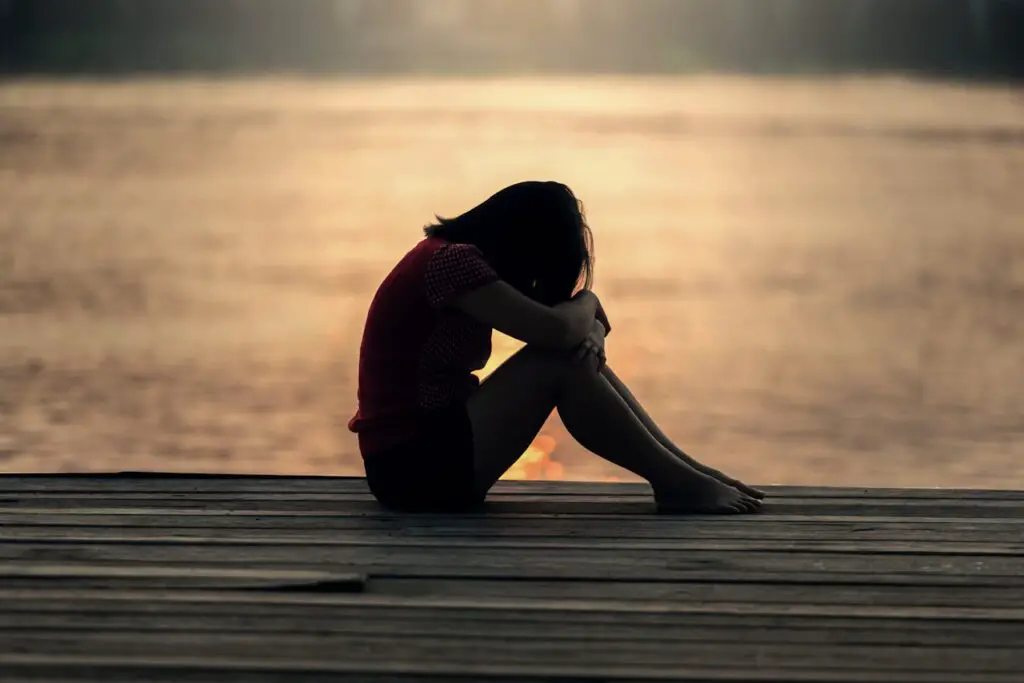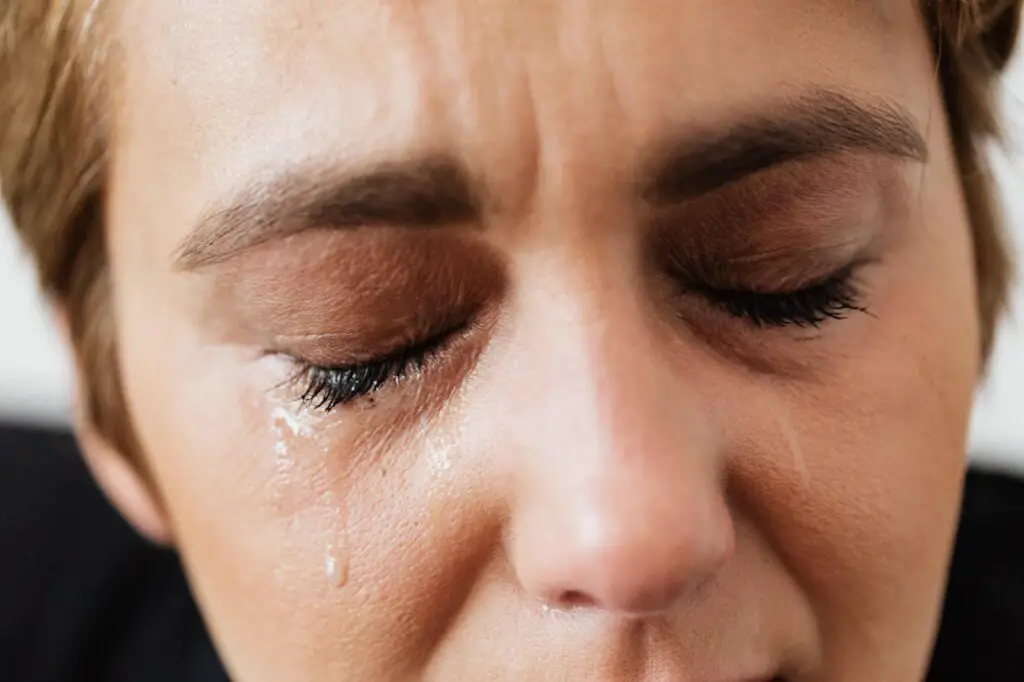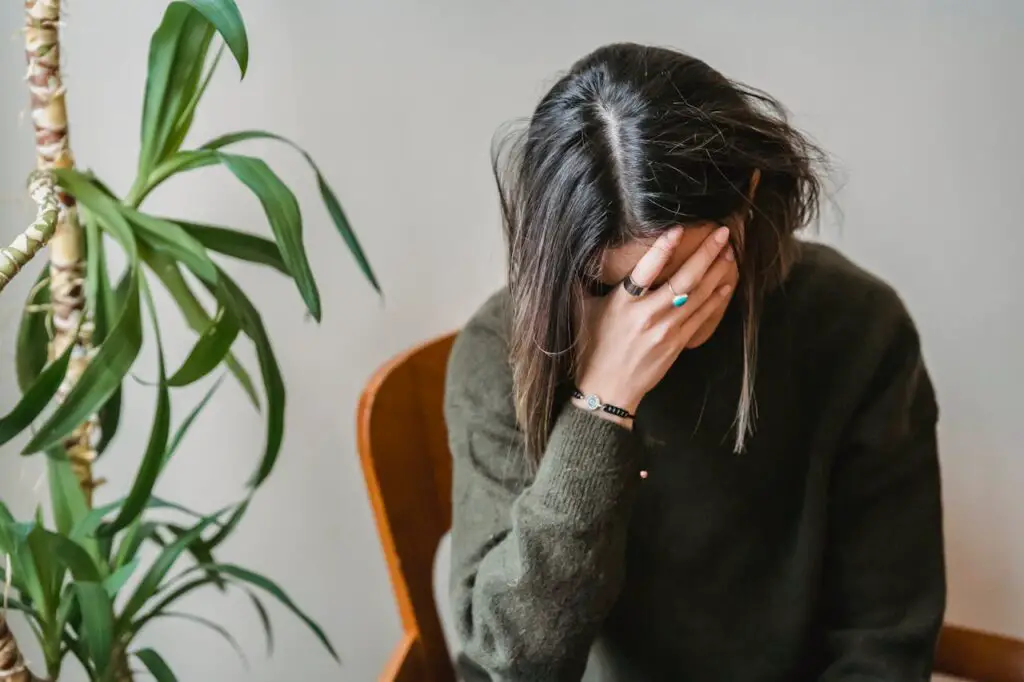ARE YOU SUFFERING FROM POSTPARTUM DEPRESSION?
Not feeling any attachment to your child?
Feeling suffocated and unable to understand your feelings…
Everything seems a burden..
The sleepless nights, the rushed baths, untimely meals and of course no ME TIME..
THIS IS NATURAL
THIS IS POSTPARTUM DEPRESSION!
When I had my firstborn after more than three years of my marriage I thought I would be the happiest person in the world..
But what I felt was totally the opposite!
I felt burdened. Also I couldn’t comprehend my feelings and wasn’t able to share them with anyone…
I WANTED TO SCREAM !
Later after years of having him, I found out that it was POSTPARTUM DEPRESSION…
This blog is for all women who are feeling the same scream inside and don’t know what they are going through is actually a medical condition and that they can feel better through proper treatment…
Let’s understand POSTPARTUM DEPRESSION and fight with it…

What is Postpartum Depression?
Postpartum depression also known as PPD is a medical condition. The term postpartum itself means the time after having a baby. That is why it is known as postpartum. It is a combination of strong negative feelings such as:
- Anxiety
- Sadness
- Tiredness
- Mood Swings
If it feels really hard taking care of yourself and your newborn after birth then it’s definitely postpartum depression.
When Does Postpartum Depression Start?
Birth is a tiring process. Either you go through normal delivery or a C-section you and your body go through A LOT!
From the labour pains to the stitches and meds everything takes a toll on your physical as well as mental well being. It is not easy being a mother.
Postpartum depression starts after you give birth. The time period is between one to three weeks after giving birth. However, there is no exact time estimation of its occurrence. It has the probability of happening anytime after birth.
The highest probability of PPD is exactly one year after birth.
Stats indicate that one in every seven women is affected by PPD.
How Long Does Postpartum Depression Last?
Seeking adequate treatment for PPD is important. Women who do not seek any medical help within one year of having PPD make their symptoms worse. Although PPD may last for one year if a year has passed that doesn’t mean that you are cured from it. It may become WORSE if you do not seek any professional help.
Postpartum Depression Symptoms
A lot of women confuse “baby blues” with postpartum depression. Well, they are both different..
Baby blues are emotions of sadness, confusion and irritability that last for a shorter period of time. However, if these symptoms persist along with the following symptoms then it is definitely PPD.
Feeling the Urge to Cry:
PPD makes the patient have a constant urge to cry. You don’t know any obvious reason for crying. This urge gets serious with the passage of time. It is because the baby doesn’t even let you cry in peace. The feeling becomes worse.
Negative Thoughts:
Negative thoughts and thoughts of suicide and self-harm come to your mind. You lose your sense of humour. Also you are no longer the happy mum you expected yourself to be..
You have this constant urge to withdraw from your friends and family members.
Lack of Bonding with the Baby:
You brought a tiny adorable human being into this world. You are expecting yourself to be overwhelmed with joy. But you are not!
Instead, you do not feel any bonding with your baby. Each day is making your mom’s guilt worse. In severe conditions, patients with PPD symptoms even try to harm themselves or their babies. This is how BAD postpartum depression can be.
Hallucinations
Postpartum depression at its peak can lead to postpartum psychosis. Postpartum Psychosis is a mental health emergency situation. The patient begins to have hallucinations. She smells, hears and sees things that are not present in reality. This condition affects a person’s sense of reality.

What Causes Postpartum Depression?
A number of reasons can be a cause of postpartum depression. Let’s have a look at some of them:
A History of Depression:
Individuals with a history of depression in their early life have more chances of getting postpartum depression. For example if someone has gone through a difficult childhood, a childhood trauma or any distressing event before or during the pregnancy can lead to postpartum depression.
In my case I had severe postpartum depression after my first baby. I believe the reason was excessive hormonal medications before the pregnancy because of PCOS treatment. Negative pregnancy tests and a distressing “trying to conceive period” became the cause of postpartum depression in my case.
Genetics:
Believe it or not genetics play a vital role in the occurrence of PPD. If you have a family history of depression than their are nore chances for you to suffer from postpartum depression.
Physical Changes:
A mother goes through several physical changes after she gives birth. Her whole body goes through a difficult and distressing experience. It takes time to accept the bodily changes. The adjustment phase can cause the mother experience postpartum depression.
Postpartum acne for example is a normal phenomena . However if a mother doesn’t feel good about her appearance she can have postpartum depression.
Newborns take time in adjusting to the new world. Everything for them and around them is new. They take time in having a proper sleeping routine. For a mother who is already going through physical recovery staying awake whole night can be extremely distressing.
My elder ones used to wake up whole night for the first 40 days. Staying awake whole night after a c-sec and stitches wasn’t easy. No matter how co-operative your partner is ultimately its you who suffers.
Hormonal Changes:
Research indicates that a drastic drop in the progesterone and estrogen in the mother’s body can lead to postpartum depression. The decrease in the level of these two hormones can make the mother feel depressed, down and sluggish.
What Does Postpartum Depression Feel like?
As per my experience, it feels like HELL
I mean nothing pleases you. Not even your baby.
It feels that everything and every person around you is just bringing you down. You tend to ignore the positives in your life. All you see is just negativity.
NEGATIVE EMOTIONS SURROUND YOU
In extreme cases of postpartum depression, you might also feel suicidal. You will like to scream and cry. You might want to harm your baby as well.
If you are feeling like this you should consult a doctor as soon as possible.
How to Prevent Postpartum Depression?
| Go Out | Try to go for a walk regularly with your baby and partner. Meet with other mothers and build a support group. This can help you PPD. |
| Educate Yourself | I believe one of the main reasons behind my PPD was ignorance. I didn’t know what I was going through was a problem actually. That is why I kept suffering and didn’t get treatment.It’s therefore better to educate yourself about postpartum depression. In this way you will know that this is a normal issue that is treatable. |
| Take time for Yourself | Observe that mothers invest too much in their babies that they forget they have a life of their own as well. So take time for yourself. Join a gym, a good skincare routine, a phonecall with your friend. This can help you in lifting your mood and thus preventing postpartum depression. |
How to Treat Postpartum Depression?
| Psychotherapy | Consulting a mental health practitioner can help you a lot. Talk to him or her about your concerns and whatever you feel like. Therapy sessions can have a huge positive impact upon your behavior. |
| Antidepressants | Personally I never recommend antidepressants because I have never taken them. However in case of extreme cases your practitioner might suggest them. Make sure to consult a doctor if you are breastfeeding. |
| Motivate Yourself | Motivate yourself and stay strong. Surround yourself with good people. Take help from your partner. Try to get good sleep whenever you can. Its only you who can overcome this feeling. |
My Two Cents:
Always remember that
YOU ARE IMPORTANT AS WELL
Postpartum depression is not a disorder. It is a normal condition that mothers go through after they give birth. It is treatable. You can prevent it and avoid it. Remember that YOU ARE THE MOST CAPABLE PERSON TO TAKE CARE OF YOUR BABY.
WE LOVE YOU MOMMY!
